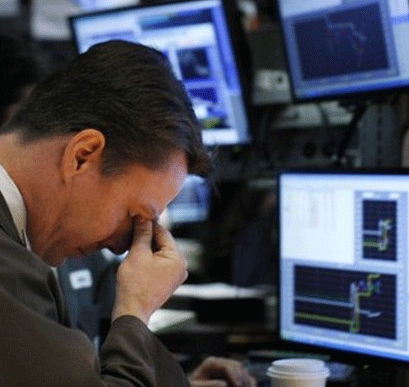 Often, traders can get too focused on making profits from each and every trade that they abandon logic. All better judgment sometimes go down the drain in the face of desiring more profits. Furthermore, psychologically, deciding to stop trading can feel like an admission of defeat. And it’s human nature to not want losing or anything that implies it. However, there are really instances when the decision to stop trading is the best thing to do. Yes – even if a trader has to stop at a loss. It could be part of a money management plan or the best exit option in the face of certain circumstances. Below, we list the 4 warning signs that you should stop trading: High on Emotions Emotions are the most potent adversary against trading. Fear and greed specifically, could drive you to make illogical trading decisions. And if you’re high on both emotions, it might be high time to take a deep breath and stop trading for the meantime. Fear is that gut-wrenching emotion that gives you cold feet in the face of severe risk. If fear is too numbing, it can prevent a trader from doing things that ought to be done. For example, an unexpected adverse move of the market results in several losing positions. Because it was sudden and unexpected, instead of doing something to money manage as dictated by your trading system, you could be paralyzed with fear. Thus, you incur a bigger loss. On the other hand, greed is often touted as the opposite of fear and just as potent in resulting to a badly-managed trade. Greed can compel a trader to do something that’s not according to plan. An example is when the trade is going your way, and you begin to think that you can make more profit by letting your positions run even if you hit the profit target. Or the market is trending upward and you’re tempted to open a long position against the dictate of your trading system. In such cases, you’re letting greed control your actions. Greed and fear has to be controlled the very moment it surfaces. But if you’ve mismanaged consecutive trades due to these emotions, it may be high time to stop and get a breather if you don’t want bad calls keep piling up and result to huge losses. Trading Addiction Some people are lured into the opportunity and the hopes of making big bucks in trading that they become too focused with the promise of raking the profits and not really on the process. What may seem like relentless passion for trading could be trading addiction. Trading addiction is pretty much like a gambling addiction. If a trader has a hard time stopping to trade even if he keeps losing and has already wiped out his trading account. If his losses keeps piling up and instead of taking a step back and check where he’s failing; he goes on with his trades thinking that the big break is waiting just around the corner. Chances are, winning will be far out and unless the trader takes a break from trading and honestly examine his actions, it will ruin his life instead. Wrong Mind Frame Sometimes traders can go on a losing streak without any good reasons at all. Upon closer reflection, it could be that the trader is not in the right frame of mind to be trading. Traders have to be “in the zone” to get the edge in trading. If there are some things that’s bothering a trader it could affect his performance. One good example is the turmoil a trader faces after a very big loss. Some traders could get very affected with the loss that the next trades would be affected. He could go on a “revenge trading” mode or cower in fear even if an opportunity with the right precedents to become lucrative trade presents itself. Whichever the case, it’s a bad idea to go on trading with such frame of mind. Going Against the Plan Plans and trading systems are there for a reason. It helps you execute each and every trade according to rules that’s proven to stack the odds in your favor. However, there are times when certain market conditions tempt a trader to abandon all rules and just go for it. You need to control such thinking. First of all, if you go against the rule and you lost, you’d blame yourself for it since it was an unnecessary loss and your next trades will be affected. Or if you break the rules and you profited, you’ll be lured into thinking that you’ll always get away with it. It will be a very painful and costly experience to learn that such is not the case. Stopping to trade may feel like you’re throwing in the towel. But it’s not; the most successful traders know when they should stop trading. Think of it like a basketball timeout. Just because the coach calls for a timeout doesn’t mean he’s giving up on the team; the timeout is simply a chance to reflect and strategize. A timeout is needed so the players will perform better in the next plays. And so it is with trading; stopping doesn’t equate to losing – it’s even needed to have a better chance at winning.
|

|
|
|
|